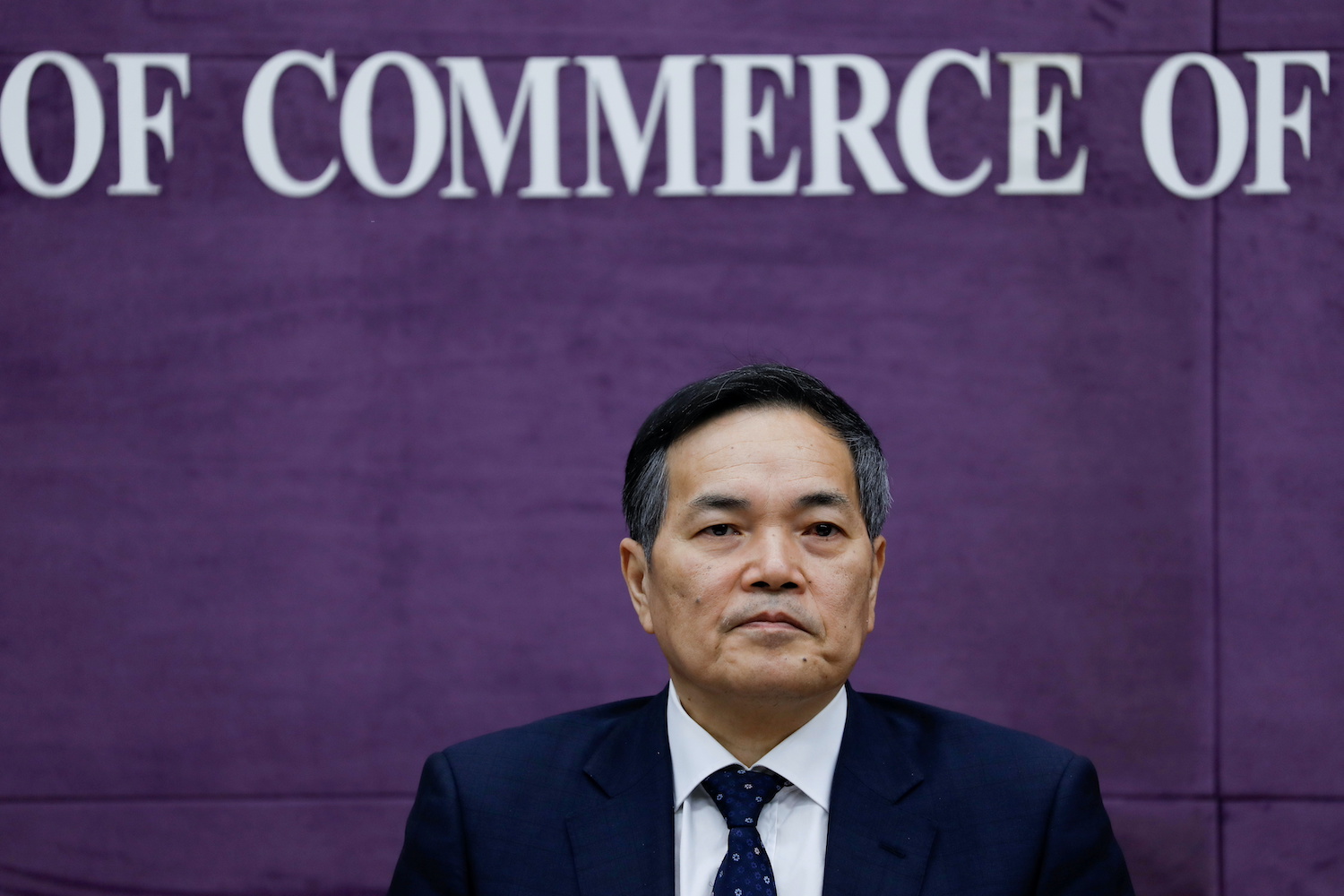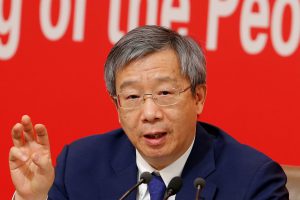(ATF) Beijing’s financial watchdog has confirmed it is keeping a close eye on foreign capital flows in and out of the country as overseas interest in Chinese equities grows.
Foreign investment in China’s stock markets started as early as in 2002, and has risen rapidly after Chinese shares were included in the MSCI index in 2018, Fang Xinghai, vice-chairman of the China Securities Regulatory Commission (CSRC), said on Monday, according to a report by China Fund, a newspaper affiliated to the state-run People’s Daily.
As of 31 March, foreign holdings accounted for 5% of the total in the Chinese stock markets, which is “still relatively low”, he added in a panel session at the Boao Forum, an event that Beijing is trying to promote as Asia’s answer to the World Economic Forum in Davos.
Foreign investors in Chinese-listed companies are still subject to a 30% ownership cap and have limited derivatives tools at their disposal in Chinese markets.
Foreign capital is playing an increasingly influential role in market pricing, and has helped improve the steady operation of mainland China’s A-share markets, he said.
MARKET VOLATILITY GAUGE, QUOTAS
In Fang’s view, China’s stock markets provide great potential while the country’s economy is growing rapidly. Professional investors that hold long positions in value stocks are lacking in China, and foreign investors will fill the gap, he said.
China will work towards expanding the scope of A-shares’ inclusion in global major indexes so as to further attract foreign investment, Fang said.
He added that the CSRC is paying “close attention” to large inflows and outflows of foreign capital and is confident of keeping China’s capital markets stable as the country opens them up.
“When we designed the rules for the Stock Connect schemes, we put in place a mechanism that could suspend the trading if a foreign account causes significant market volatility after entering the market,” Fang said.
The regulator maintains daily quotas of 50 billion yuan ($7.7 billion) for fund inflows and 42 billion yuan ($6.5 billion) for outflows for the Stock Connect scheme, which helps to head off risks, according to Fang.
China’s economy grew at a record pace of 18.3% in the first quarter as demand recovered at home and abroad, albeit from a low base from 2020.
With the economy back on more solid footing, authorities are turning their focus to cooling credit growth to help contain debt and financial risks. They are especially concerned about financial risks involving the country’s overheated property market, and have asked banks to trim their loan books this year to guard against asset bubbles. But policymakers have also vowed no sudden policy shift.
Meanwhile, Xuan Changneng, deputy administrator of the State Administration of Foreign Exchange (SAFE), said on the same panel that SAFE would also keep up regular monitoring of cross-border capital inflows.
External factors for China’s currency, the yuan, to appreciate are weakening, he added.
The yuan gained more than 6% against the dollar in 2020 as China made a comparatively speedy recovery from the coronavirus outbreak and in January this year hit its strongest level since June 2018 at about 6.42 yuan.
US-LISTED CHINESE COMPANIES
Speaking of the auditing supervision faced by Chinese companies listed in the US, Fang said it is “entirely reasonable that the US’ Public Company Accounting Oversight Board (PCAOB) need to inspect the accounting firms of Chinese companies listed in US exchanges.
“In the future, the Shanghai Stock Exchange may also host listings from US companies, which will also need to comply with Chinese rules,” Fang said.
The Chinese side provided a proposal last August for the PCAOB to inspect Chinese accounting firms while complying with China’s national security requirements, but has not yet received a response, he said.
“We hope that the new US administration, after fully taking office, will reattach importance to China-US financial cooperation and resolve these issues in good faith,” Fang said.
The US Senate passed a bill last May that required foreign companies to open their books and disclose links to foreign governments. The bill, known as the Holding Foreign Companies Accountable Act, was signed into law by previous US president Donald Trump in December.
The rules aim to remove Chinese companies in the US exchange if they fail to make their financial records and audit papers available for inspection by the PCAOB within three years.
The PCAOB says it’s blocked from reviewing the audits of over 200 companies based in China or Hong Kong, including Alibaba, PetroChina, Baidu and JD.com.
With reporting by Reuters
Note: This story was updated with further details on April 21.






















